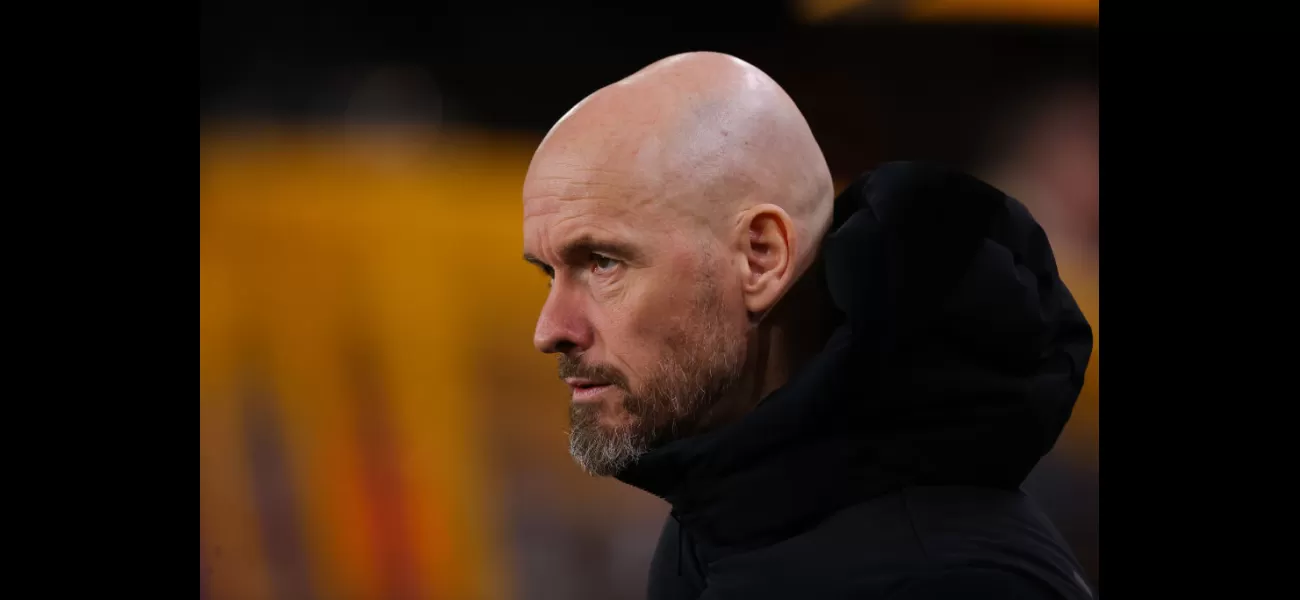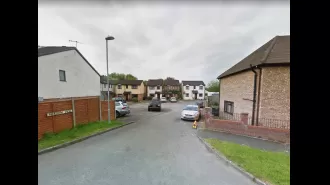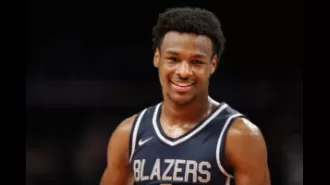Erik ten Hag suggests unusual cause for Manchester United's poor performance.
It will be a while before you can compete for top spots in the Premier League or Champions League.
February 17th 2024.

Erik ten Hag's second season at Manchester United has been a rollercoaster ride of highs and lows. After a successful first season at Old Trafford, expectations were high for the team to continue their upward trajectory. However, things have not gone according to plan, with the Red Devils currently sitting in sixth place in the Premier League table, eight points off the top four.
Many have been quick to criticize the players, the manager, and the ownership for the team's struggles. But in a surprising twist, Ten Hag has pointed the blame at Financial Fair Play (FFP) for hindering their progress. Despite spending nearly £200 million on new players this season, the Dutchman believes that their hands were tied due to FFP regulations.
"When we were in the summer, we had great momentum. We had finished third in the league, won one final, and were in another final," Ten Hag explained ahead of their upcoming match against Luton Town. "But then we had to make a choice to bring in young players for the future, and that decision was influenced by FFP."
However, this excuse doesn't hold up when you look at their transfer activity. Last summer, United splashed out a whopping £188 million on seven new players, with an average age of 26. And the majority of this money was spent on just three players: Rasmus Hojlund, Mason Mount, and Andre Onana.
While Hojlund may be considered a young and promising talent, his transfer fee still makes him one of the most expensive signings in the club's history. And it's worth noting that United had the chance to sign Harry Kane, their top target, for just £30 million more than they spent on Hojlund. But they opted for the Danish forward instead, a decision that has been heavily criticized in light of their current struggles in front of goal.
Despite this, Ten Hag remains confident in the potential of United's academy to produce top-quality players in the future. He has already seen promising signs from youngsters like Alejandro Garnacho and Kobbie Mainoo, and believes that the club's history of promoting academy players to the first team is in their DNA.
"Manchester United will always be a buying club, but we also have a rich history of giving opportunities to players from our academy if they deserve it," the manager stated. "We have seen great progress from these young players, and they have brought the team to higher levels in the long-term."
In the end, it's clear that United have a long-term plan in place, and while the current season may not be going as well as they had hoped, they believe in the potential of their young players to lead them to success in the future.
Many have been quick to criticize the players, the manager, and the ownership for the team's struggles. But in a surprising twist, Ten Hag has pointed the blame at Financial Fair Play (FFP) for hindering their progress. Despite spending nearly £200 million on new players this season, the Dutchman believes that their hands were tied due to FFP regulations.
"When we were in the summer, we had great momentum. We had finished third in the league, won one final, and were in another final," Ten Hag explained ahead of their upcoming match against Luton Town. "But then we had to make a choice to bring in young players for the future, and that decision was influenced by FFP."
However, this excuse doesn't hold up when you look at their transfer activity. Last summer, United splashed out a whopping £188 million on seven new players, with an average age of 26. And the majority of this money was spent on just three players: Rasmus Hojlund, Mason Mount, and Andre Onana.
While Hojlund may be considered a young and promising talent, his transfer fee still makes him one of the most expensive signings in the club's history. And it's worth noting that United had the chance to sign Harry Kane, their top target, for just £30 million more than they spent on Hojlund. But they opted for the Danish forward instead, a decision that has been heavily criticized in light of their current struggles in front of goal.
Despite this, Ten Hag remains confident in the potential of United's academy to produce top-quality players in the future. He has already seen promising signs from youngsters like Alejandro Garnacho and Kobbie Mainoo, and believes that the club's history of promoting academy players to the first team is in their DNA.
"Manchester United will always be a buying club, but we also have a rich history of giving opportunities to players from our academy if they deserve it," the manager stated. "We have seen great progress from these young players, and they have brought the team to higher levels in the long-term."
In the end, it's clear that United have a long-term plan in place, and while the current season may not be going as well as they had hoped, they believe in the potential of their young players to lead them to success in the future.
[This article has been trending online recently and has been generated with AI. Your feed is customized.]
[Generative AI is experimental.]
0
0
Submit Comment





